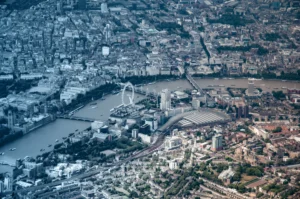What is the Graduate Visa?
In 2021, the UK introduced the Graduate Visa, which allows students to stay in the country after completing their studies. This visa provides graduates of British universities the opportunity to live in the UK for two years after obtaining a bachelor’s or master’s degree, and for three years after completing a PhD.
Students who have successfully completed certain postgraduate courses, such as GDL and LPC, are also eligible for the Graduate Visa, provided their course duration was at least 12 months.
With the Graduate Visa, graduates can seek employment, undertake internships, participate in graduate schemes, and change jobs without needing sponsorship. However, this visa does not lead to Indefinite Leave to Remain (ILR) and does not count towards the total time required for ILR.
Opportunities provided by the Graduate Visa
The Graduate Visa offers the following opportunities:
- Participation in graduate schemes and internships
- Employment
- Self-employment
- Voluntary work
- Living in the UK with a spouse or partner and children, if they have the relevant rights
- Travelling abroad and returning to the UK
- Switching to other types of visas once the Graduate Visa expires
Drawbacks of the Graduate Visa
What cannot be done with the Graduate Visa:
- Applying for most public benefits
- Working as a professional athlete
- Extending the Graduate Visa
- Applying for ILR or citizenship after the Graduate Visa expires
Alternatives to the Graduate Visa
If the Graduate Visa is not suitable, consider the following alternatives:
- Skilled Worker Visa: Allows you to apply for ILR after 5 years.
- Global Talent Visa: Allows you to apply for ILR after 3 years or 5 years.
- Innovator Founder Visa: Allows you to apply for ILR after 3 years.
If your goal is to obtain ILR and subsequently British citizenship as quickly as possible, the Global Talent Visa and Innovator Founder Visa are the best options.
Both visas allow for employment and business activities, but the Global Talent Visa has more stringent requirements and a higher risk of refusal.
The main challenge with the Global Talent Visa is meeting its rigorous selection criteria and convincingly demonstrating your talent through recommendation letters, public speaking engagements, and media publications.
If your profile does not meet the requirements for the Global Talent Visa, consider the Innovator Founder Visa, which only requires presenting a business idea.
This visa will enable you to start and grow a business in the UK, work in employment, bring your family, and obtain ILR after 3 years, followed by British citizenship.



